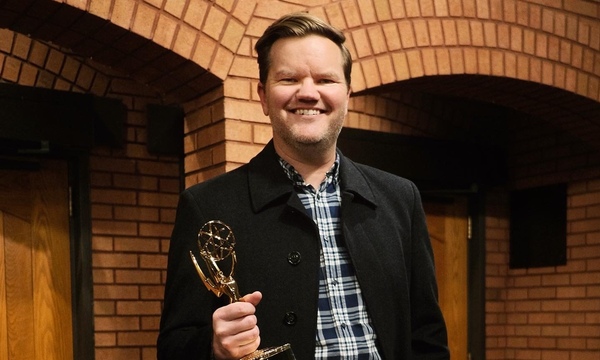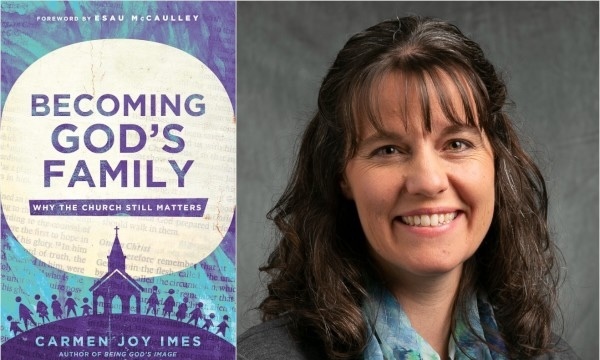Intercultural studies professor, Leanne Dzubinski, at Biola University’s Cook School of Intercultural Studies, recently released research on the importance of women’s needs on the mission field. The study — “Justice meets Justification: Women’s need for holistic ministry in world mission” — was published in Missiology: An International Review this spring.
Written by Dzubinski, Shawna Warner, a doctoral student at Biola and a professor at Payap University in Thailand, and Biola University doctoral students Sarah Wood and Colleen Martin, the four authors of the article reviewed the importance of women speaking into the conversation about mission practice and how to reach women with the gospel, particularly in the regions included in their study: Thailand, MENA (Middle-East & North Africa) and Indonesia.
Dzubinski is the chair of Biola’s intercultural education department and has more than 25 years of cross-cultural ministry experience. She has published several articles in academic journals and worked in a number of different ministries in Barcelona, Spain and Graz, Austria, as well as ministries in local Asian-American churches among other opportunities.
Here, Dzubinski shares about her research results and the importance of women being part of the conversation for missiology strategy to serve global women.
How would you sum up your recent study?
Our goals were to give women who are mission practitioners a voice in the discussion on mission practice and theory, and the needs that remain to reach the lost. We are all women and we recognize that reaching women is a significant part of the mission picture. By looking specifically at the contexts where we each work, we have tried to draw attention to the challenges unique to women. We also wanted to note how mission efforts need to be thought through carefully and designed to work more holistically to bring the gospel to everyone who needs that message.
What is unique about your research compared to other studies on this subject?
This study combined information on women from three distinct areas of the world: Thailand, MENA (Middle-East & North Africa) and Indonesia. Although their economic, educational, and cultural situations differ, the pressures they experience as women are very similar.
All three societies we studied have strict traditional definitions of women’s roles and men’s roles. At the same time, shifting cultures and globalization have created different ways for women to meet those expectations. So both Thai women and Indonesian women have cultural pressure to provide financially for their families, even when this means entering the sex trade (knowingly or by being trafficked). In some rural areas of MENA, women are expected to provide fully for their families, yet have limited resources. Some of them turn to the supernatural in order to try to meet the demands they face.
A second challenge is educational opportunities. Lack of access to education may mean that women lack skills and abilities to earn a living. We studied women who, because they lack job skills, or even basic literacy, may resort to the supernatural or to sexual “employment” in order to earn a living or meet their family’s demands. We want to stress that even when women appear to “choose” to enter the sex trade, that choice is a forced choice, not a free one. Our research showed that women would only choose this option when nothing else was available to them. And of course many of them think they are entering domestic service, only to find themselves trafficked into a situation of sexual slavery.
A third challenge is geographical. All three regions have undergone rapid change. For women in rural areas, there is a lack of access to education and to jobs, which complicates their situations and makes them vulnerable. Even more problematic is their lack of access to the gospel. In fact, we believe that rural village women in these societies and others like them are truly among the least reached people in our world today. Yet they are hardly ever mentioned in discussions of unreached peoples. One goal of our study is to draw attention to this reality in the hopes of mobilizing mission resources to bring the gospel to women who need the good news of Jesus.
What do you hope will change for these women?
Our hope is to raise awareness of issues that are faced by women, as this is an important step toward change. We may not see immediate changes, as there are some deep, underlying cultural, religious, and societal factors that hinder progress. However, raising awareness helps spur on dialogue and, eventually, attitude, and values changes.
What can be done to bring a solution to the issues you mention?
We speak about justice and justification, in general. For women scholars, we hope to create the space, opportunity, and respect to speak with authority into mission strategy and missiological discussions. We want to encourage women around the globe who work in mission and ministry to take themselves and their work seriously. We want to include the voices of women and draw attention to the needs of women in the broader conversation about mission theory and practice.
The solutions for the women we wrote about are more complex. While we obviously want to bring them the hope of the gospel, we recognize that there are numerous cultural, political, economic, and social factors that influence the realities so many women face. How can Christians, women and men, be a part of making sure these women’s needs are not overlooked?
Women are incredibly resilient. In some of the situations we studied, many women feel resigned because they feel powerless to change anything. However, given the opportunity and chance to change things, most would likely try. Others, even in difficult circumstances, are actively engaged in advocating for their own survival and well-being. To deny opportunities like education to an entire gender is profoundly discriminatory and harmful to everyone. Women are more vulnerable to abuse and violence when they are not given access to choices. Of course women can find hope by trusting God, but that is not a substitute for an education and a safe environment.
Are there biblical passages you recommend for those advocating for women to receive an education when culturally oppositional?
Look at the ways Jesus speaks into the lives of women. He sees them, calls them as followers, and redeems them. He trusted the Samaritan woman with the news of his presence and the women at the tomb with the news of his resurrection. Women need the same gospel message as men, and mission strategy is incomplete if it fails to take the needs of women into account. For those of us who belong to God, our responsibility is to use the gifts and abilities he’s given us through the Holy Spirit and to follow his call in our lives.
How will education assist with the needs of the women you studied?
Education seems to be a part of providing the respect needed to allow some women into leadership roles. Women must earn our voice and education is a big part of that; then we have more understanding of how to make an impact in whatever arena God places us.
Written by Clavel Candelaria, iBiola Reporter. For more information, contact Jenna Loumagne, manager of media relations, at (562) 777-4061 or jenna.loumagne@biola.edu.
 Biola University
Biola University
.jpg)

